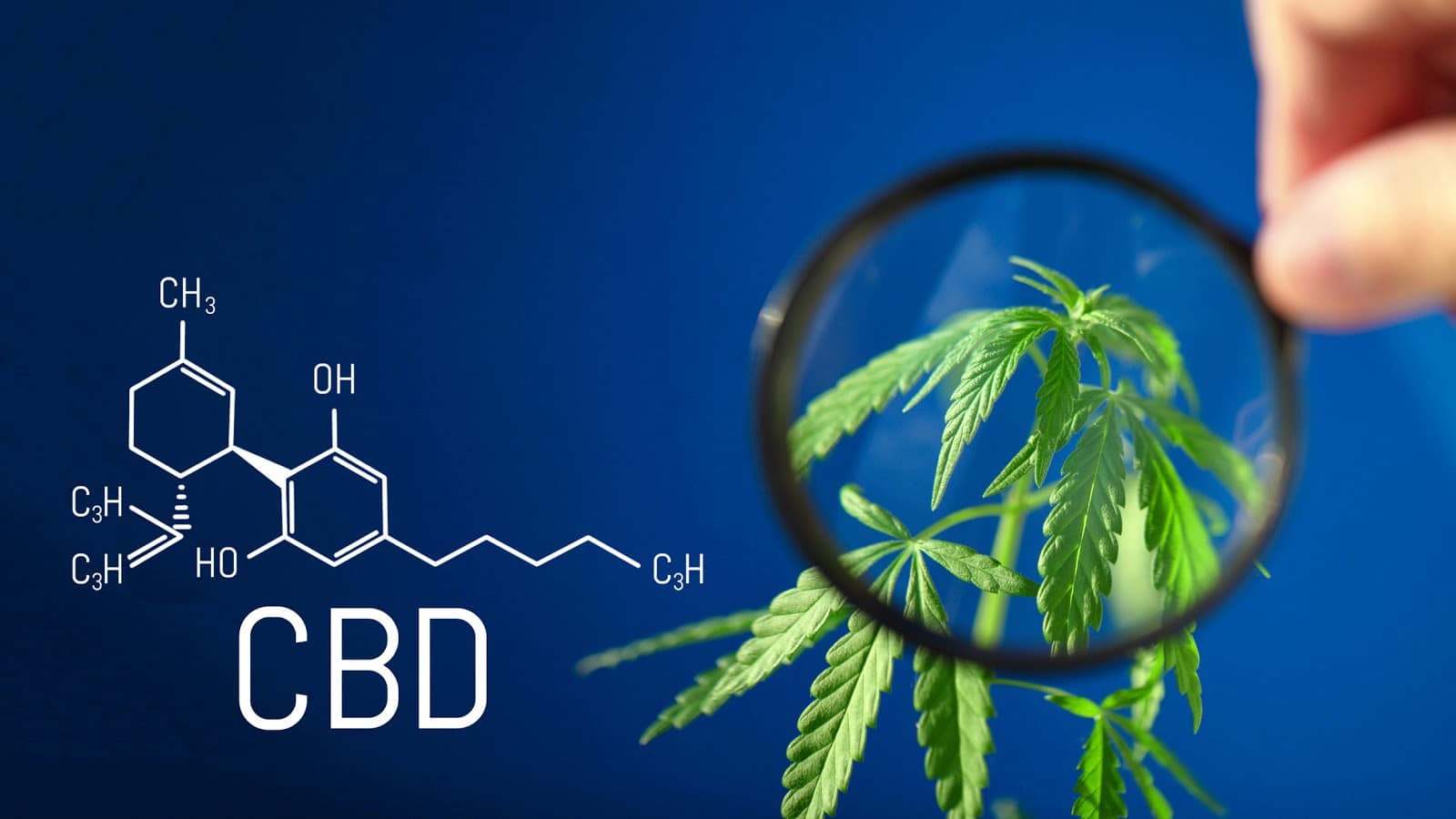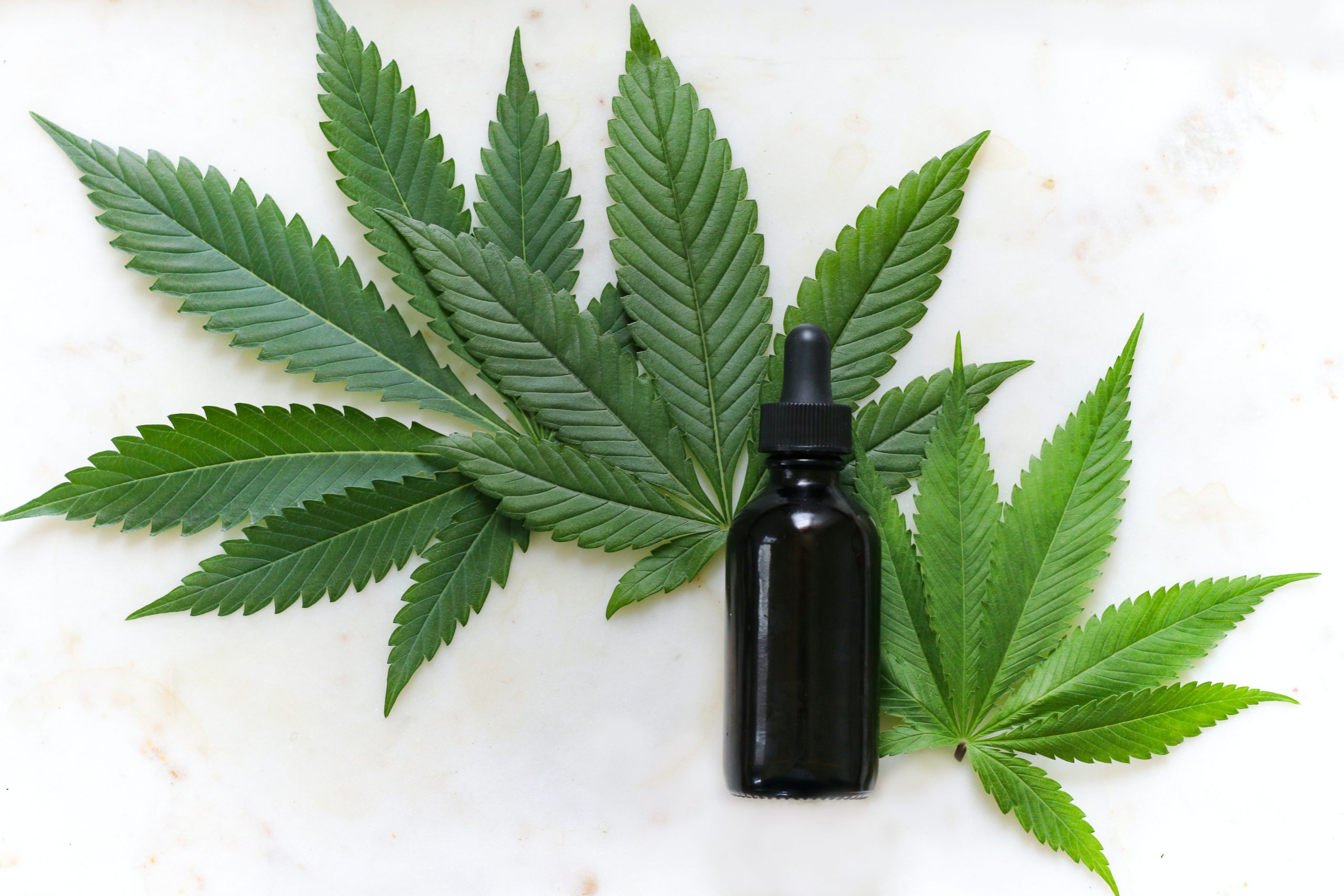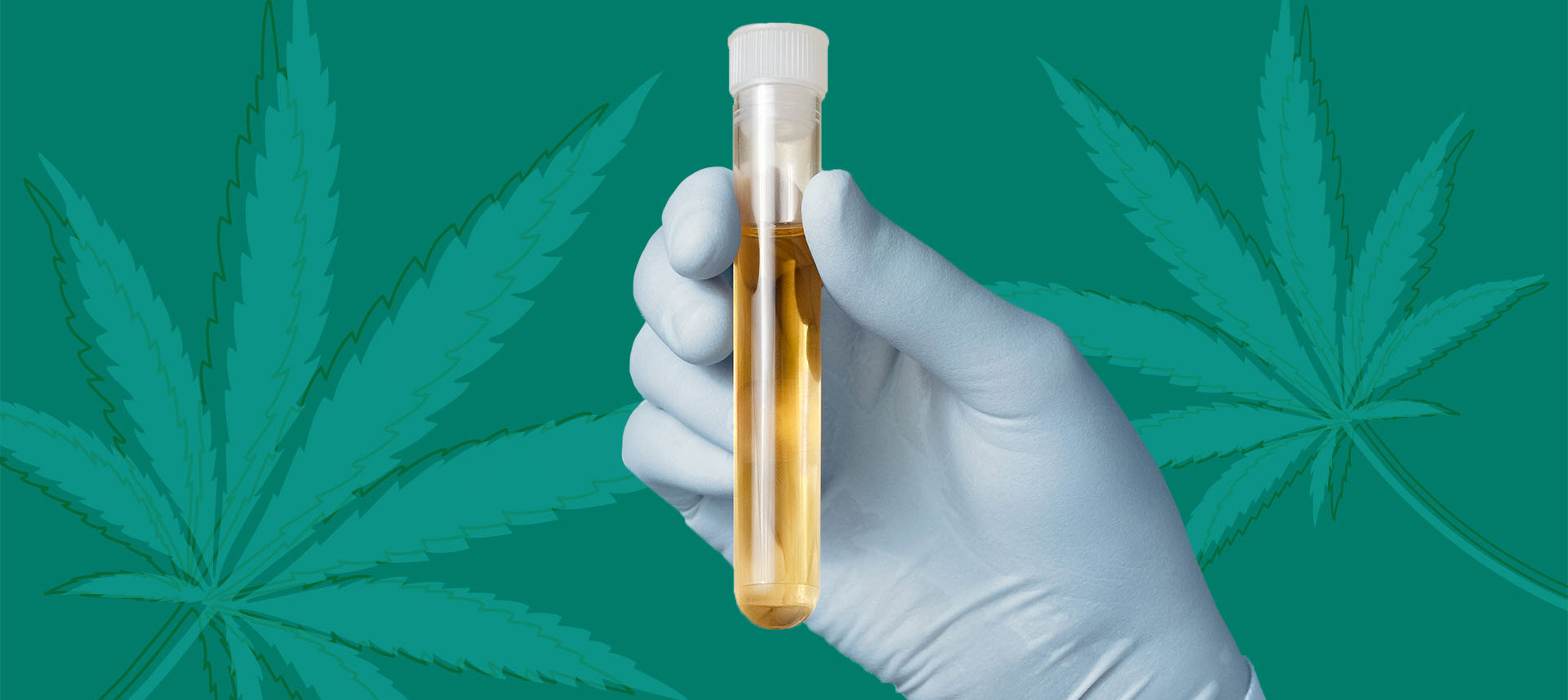How Can We Help?
Will CBD Oil Show Up on a Drug Test?
CBD is one of the most popular cannabis-derived products on the market; many people use it for various health and well-being reasons. The health benefits that CBD oil offers include pain management (neuropathic pain, cancer pain, etc.), anxiety disorder relief (Social Anxiety Disorder, Post Traumatic Stress Disorder, etc.) and weight loss.
CBD is one of many cannabinoids that come from the cannabis plant. Other cannabinoids in the plant include CBDV, CBC, and more. However, the most prominent cannabinoid other than CBD is THC. THC is the cannabinoid found in recreational cannabis and provides people with psychoactive effects and the signature high effect.
THC will always show up in a drug test. However, does CBD oil show up on a drug test?
Read on to find out if CBD shows up on a drug test, which CBD products are best to avoid a positive drug test, and more!
Can CBD Cause You To Fail A Drug Test?
While pure CBD isolate doesn’t show up in a drug test, if you have a CBD product with some THC in it, there is a chance it will show up and result in a positive test. Whether the product shows up on a drug test depends on how much THC is in the product.
You need to check how much THC is in the product you use and ensure you have a good quality product. You should also discuss your CBD dose with your doctor and ask if that dose will appear on a drug test (if you take CBD isolate or broad-spectrum CBD, you don’t need to worry about this). Generally these are the only two versions of CBD available in New Zealand anyway.
What Is The Process Of A CBD Drug Test?
A drug test won’t screen for CBD, but it will for THC (and some of the metabolites, including THC-COOH). So, if you have a product with a high enough dosage of THC, you will get a positive test.
One element worth noting is that you won’t necessarily fail the test if you use a CBD product with THC in it. It entirely depends on the dosage of THC; if the dosage is too high, it will show up on the test, but if it’s low enough, it won’t.
There are multiple testing methods that you will typically find at a workplace. These methods have different parameters, so it’s worth being familiar with all of them. They also all measure in nanograms, close to a billionth of a gram.
Urine Drug Tests
Urine tests are arguably the most common form of drug test in the workplace because they are a very thorough test form.
In the urine test, the level of THC-COOH must be fifty nanograms per millilitre or higher to create a positive test result. If you take a higher dose or use a full spectrum CBD product frequently that has THC in it, it is more likely to appear on the test.
They can usually detect THC-COOH in urine tests up to fifteen days after using it. However, if you take a higher dose or use the product frequently, that detection time frame can extend to up to thirty days.
Blood Tests
Urine testing is the only form of testing that’s common in the workplace; blood testing is far less common. Blood tests also aren’t the most helpful test for picking up THC levels because THC doesn’t remain in the bloodstream for very long after use.
However, you can still find this test in the workplace because it can detect specific THC metabolites (THC-COOH) for up to seven days after use. Testers will use a blood test if someone is allegedly under the influence of drugs or alcohol.
If the THC concentration in your blood is over one nanogram per millilitre, that means you are still feeling the effects.
Saliva Tests
Saliva testing isn’t a common form of THC testing because the cut-off limits and parameters for detecting THC in saliva are very vague and not certain (roughly four nanograms per millilitre.
If you use CBD products, a saliva test can usually detect the THC within 72 hours of use.
However, if you take a larger dose of CBD and use it more often, a saliva test can detect the CBD in it after a more extended period.
Hair Tests
Hair testing is very similar to saliva testing because it is not a common form of test; the cut-off limits and parameters for detecting THC in the hair are vague and uncertain (roughly one picogram per millilitre). The main reason why hair testing is helpful is that THC is detectable for up to 90 days in the hair.
The Best Advice To Avoid A Positive Drug Test?
If you regularly take CBD, weekly drug testing at your workplace can be a stressful experience, especially if you have to take a larger dose or have to take CBD more times a day. However, if you take some preemptive measures, you can continue to take CBD regularly whilst avoiding a THC positive test.
While a full spectrum CBD is a superior product, if you’re dealing with drug tests, just use a CBD isolate or broad spectrum product. These CBD products contain no THC, so you won’t have to worry about a positive drug test result.
If you want to or have to use Full-spectrum CBD, here is some advice to keep in mind so you don’t test positive:
- You should research the specific CBD product you want. You should check the ingredients to see if they’re pure and high quality. You should also check to see if the product testing is up to standard. Finally, research the CBD manufacturer to see if they are a well-regarded and legitimate business.
- You should specifically research the CBD products’ manufacturing process because there might be a chance of cross-contamination with THC products.
- If the research doesn’t provide fruitful results, you should check the CBD’s analysis certificate. The certificate will tell you the product’s exact THC level.
What Is The Best Type For A CBD Drug Test?
There are three primary CBD types that you can use as CBD products. They mainly vary in the amount of THC that they have in them. These CBD products are full-spectrum, broad-spectrum, and CBD isolate.
Full-Spectrum CBD
Full-spectrum CBD products contain multiple compounds from cannabis plants, including CBD, THC, terpenes and more.
You can get marijuana-derived full-spectrum CBD and full-spectrum hemp products. Full-spectrum hemp-derived CBD oil contains around 0.3% THC, but marijuana-derived full-spectrum products have varying THC levels, so you need to check the THC level on the individual product.
Broad-Spectrum CBD
Broad-spectrum CBD products are very similar to full-spectrum products, with the main difference being the amount of THC. Broad-spectrum products have extremely tiny amounts of THC, if any; you should check the individual product to see if it contains any THC.
CBD Isolate
CBD Isolate (a pure form of CBD) contains no THC or other compounds from the cannabis sativa plant. If you don’t want to test positive during workplace drug tests, you should use CBD Isolate. It is commonly available in oil form.
Conclusion: Does CBD Oil Show Up In A Drug Test?
In conclusion, while pure CBD doesn’t show up in a drug test, if you have a CBD product with a THC in it, it might show up and result in a positive test. Whether the CBD product shows up on a drug test depends on how much THC is in it. You need to check how much THC is in the product you use and ensure you have a good quality product.
When you go through a drug test, it won’t screen for CBD, but it will for THC (and some of the metabolites, including THC-COOH). So, if you have a product with a high enough dosage of THC, you will get a positive test. The various testing types are urine, blood, saliva and hair testing.
If you do some research, you can continue to take CBD regularly whilst avoiding a positive test. Some of the research we recommend includes checking for high-quality ingredients, checking for cross-contamination, researching the manufacturer and checking the CBD analysis certificate.
Out of the three primary CBD types, CBD isolate is the best choice for avoiding a positive drug test. This is because it contains no THC or other compounds from the cannabis sativa plant.
Frequently Asked Questions
Can Using CBD Oil Result In Positive Drug Tests?
Yes. Some CBD oils contain THC, which will show up on various drug tests (urine, blood, hair, etc.).
THC might not show on a drug test if you don’t take CBD oil frequently. However, if you take a larger dose of CBD oil or take it more often, it’s more likely that THC will show up on a test.
To avoid testing positive, you should use CBD Isolate or broad spectrum product.
What Are The Best CBD Products To Take If You Want To Avoid A Positive Drugs Test?
If you don’t want to test positive during workplace drug tests, CBD Isolate is the best type of CBD for you. It is a pure form of CBD that contains no THC or other compounds from the marijuana plant.
If you use other types of CBD, you’ll need to research the quality of the product and whether they cross-contaminate with other CBD products.
How Can CBD Oil Cause Me To Fail A Drug Test?
The main reason why CBD can cause you to fail a drug test is the THC in the product. Some CBD oils contain THC (full-spectrum and broad-spectrum), which will show up on various drug tests (urine, blood, hair, etc.).
It’s more probable that THC will appear on a drug test if you take a larger CBD oil dose or take it more often.
How Many Hours Will CBD Oil Stay In My System?
Generally, CBD oil will stay in your system for up to eight hours (two hours minimum). How long CBD oil remains in your system depends on the product you use and how much of it you use.
The THC in some CBD oils will stay in your system a lot longer (can be detrimental for a workplace drug test), up to five days.
What Are The Best Tips When Using CBD To Avoid A Positive Drug Test?
The best tip is to use CBD Isolate products (pure CBD). However, research is also beneficial.
If you do some research on the CBD product you use, you can continue to take CBD regularly whilst avoiding a positive test.
Some of the research we recommend includes checking for high-quality ingredients in the product, checking for cross-contamination with THC products, researching the manufacturer and checking the CBD analysis certificate.
Dr Ron Goedeke, specialises in alternative and functional medicine. He is a foundation member of the New Zealand college of Appearance medicine and has been a member of the American Academy of Anti-aging medicine since 1999. With over 20 years of experience in the anti-aging field, Dr Ron Goedeke is recognized as one of New Zealand’s leaders in this new and growing field of medicine.
Related Posts
All Posts

The Cost of CBD in New Zealand – What to expect in 2021
If you’ve done some research into CBD oil and looked at buying it, you may have come across a wide range of international CBD products online that appear much cheaper than anything you find in New Zealand and there are a few reasons for this. As of April 1st 2020, New Zealand’s definition of a CBD product remains ill-advised.

Results of CBD oil in Human Trials
Cannabis has been used for thousands of years for medicinal and spiritual purposes. Since it was banned due to psychoactive effects, scientists focused on varieties with less tetrahydrocannabinol (THC) which causes those psychoactive effects. In such varieties, cannabidiol or CBD is the most prevalent cannabinoid and is responsible for many medicinal effects. CBD is mostly used as CBD oil which has been extensively studied since the middle of the 20th century. Here are some of the scientific findings from human trials.

Hemp Oil vs CBD Oil – What is the difference?
Hemp Oil and CBD Oil are two terms you might come across when looking for the right CBD product that could mean the same thing or be completely different so it is important to understand them.
CBD (cannabidiol) is the therapeutic molecule found in cannabis that is so sought after right now. Pretty much all retail CBD is extracted from hemp plants which is the name given to cannabis strains with less than 0.3% THC.
